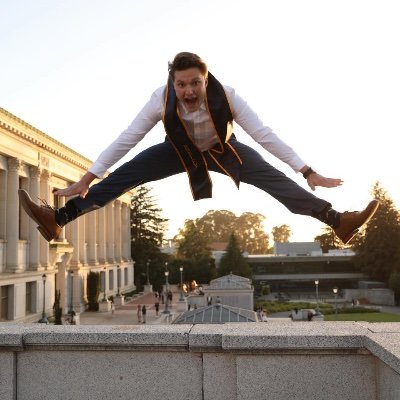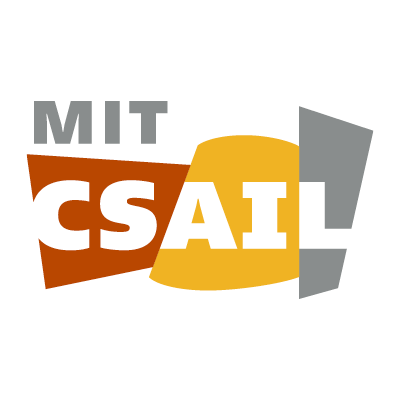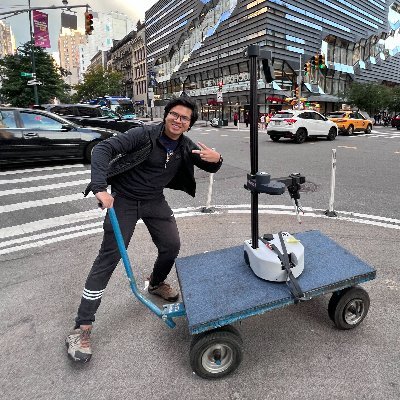
Abhishek Gupta
@abhishekunique7
Followers
7K
Following
721
Media
135
Statuses
417
Assistant Professor at University of Washington. I like robots, and reinforcement learning. Previously: post-doc at MIT, PhD at Berkeley
Seattle, WA
Joined February 2012
Thrilled to share that I will be starting as an assistant professor at the University of Washington @uwcse in Fall 2022! Grateful for wonderful mentors and collaborators at @berkeley_ai, especially @svlevine and @pabbeel. Looking forward to joining the wonderful folks @uwcse!.
33
25
463
I am recruiting PhD students to join us in the Washington Embodied Intelligence and Robotic Development Lab (WEIRD) at @uwcse. We work on robot learning, especially RL in the real world! Check out for details (1/3).
7
44
218
Excited about @ZoeyC17's new work on real2sim for robotics! We present URDFormer, a technique to learn models that go from RGB images to full articulated scene URDFs in sim by "inverting" pre-trained generative models. These can be used to train robots for the real-world! 🧵(1/8)
2
23
144
So you want to do robotics tasks requiring dynamics information in the real world, but you don’t want the pain of real-world RL? In our work to be presented as an oral at ICLR 2024, @memmelma showed how we can do this via a real-to-sim-to-real policy learning approach. A 🧵 (1/7)
1
25
137
Haven't been to a conference in a while, really excited to be at #NeurIPS2024! I'll be helping present 4 of our group's recent papers: .1. Overcoming the Sim-to-Real Gap: Leveraging Simulation to Learn to Explore for Real-World RL 2. Distributional
2
16
124
Reinforcement learning can be significantly accelerated by using offline datasets with a simple, but carefully designed actor critic algorithm! Solves dexterous manipulation tasks in <1 hour. @ashvinair M Dalal @svlevine.
0
22
118
Robot learning in the real world can be expensive and unsafe in human-centric environments. Solution: Construct simulation on the fly and train in it!.Excited to share RialTo, led by @marceltornev on learning resilient policies via real-to-sim-to-real policy learning! A 🧵 (1/12)
2
22
115
Excited to be working with all these amazing people very soon! Exciting times ahead😀 On that note I'm also hoping to recruit students this cycle to start in Fall 22. If you like ML and robotics and want to get things to work in the real world, definitely apply to UW!, 1/3.
Not even a pandemic could slow down #UWAllen faculty hiring. Over the past 2 cycles, we welcomed 15 (yes—15!) outstanding researchers and educators who have joined/will soon join us at @uwengineering @UW Seattle. Meet these new members of our community:
1
9
111
Want to get model-based RL to work in diverse, dynamic scenes? Check out @chuning_zhu's latest work (RePo) on model-based reinforcement learning without reconstruction, where we show how to learn world models that scale to dynamic, multi-task environments. A 🧵(1/6)
5
17
94
Most offline RL methods try to constrain policies from deviating far from the offline data distribution. In cases where the data distribution is imbalanced or suboptimal, this makes it hard to actually learn good behavior! In new work, @ZhangWeiHong9 proposes a solution 🧵 (1/5)
4
9
80
Over the last year, we’ve been investigating how simulation can be a useful tool for real-world reinforcement learning on a robot. While simulation captures inherently incorrect dynamics, it can still be useful for real-world learning! In our #NeurIPS2024 work, Andrew W.
3
18
76
We've been working on getting robots to learn in the real world with many hours of autonomous reset free RL! Key idea is to leverage multi-task RL to enable scalable learning with no human intervention. Allows learning of cool dexterous manipulation tasks in the real world!.
After over a year of development, we're finally releasing our work on real-world dexterous manipulation: MTRF. MTRF learns complex dexterous manipulation skills *directly in the real world* via continuous and fully autonomous trial-and-error learning. Thread below ->
1
11
68
Sharing two recent talks from my advisor @svlevine covering much of my recent work, as well as work from many of my colleagues. I really enjoyed watching these, they give a really cool perspective on frontiers of RL.
3
12
61
I did a podcast thing! Here's a recent interview on Applying RL to Real-World Robotics with @samcharrington for the @twimlai podcast. Check it out! via @twimlai.
0
9
59
Excited to share the first of several papers toward leveraging generative models as data sources for RL! RL sees minimal data, gen models see lots of data. We show that gen models (here LLMs) can provide background info for RL common sense (here exploration)! Thread by @d_yuqing!.
How can we encourage RL agents to explore human-meaningful behaviors *without* a human in the loop?. @OliviaGWatkins2 and I are excited to share “Guiding Pretraining in Reinforcement Learning with LLMs”! . 📜🧵1/
1
5
56
Excited about our work on understanding the benefits of reward shaping! Reward shaping is critical in a large portion of practical RL problems and this paper tries to understand when and why it helps. Terrific collaboration with @aldopacchiano Simon Zhai @svlevine @ShamKakade6!.
In theory RL is intractable w/o exploration bonuses. In practice, we rarely use them. What's up with that? Critical to practical RL is reward shaping, but there is little theory about it. Our new paper analyzes sample complexity w/ shaped rewards: Thread:
0
5
51
While investigating RLHF methods last year, @sriyash__ and @yanming_wan noted that human annotators in a population often display diverse and conflicting preferences. While typical RLHF methods struggle with this diversity, we developed new techniques for plurastic RLHF! 🧵(1/7)
1
10
46
Tried to share some tips on faculty applications, do take a listen if you're thinking of applying. Hope it can be helpful! Thanks for having me @talkingrobotics!.
"Start writing your research statement in the summer." Abhishek Gupta provided the BEST ADVICE if you are preparing for the #academic #job #market. This talk has TONS OF TIPS from his own experience in the job market last year. Listen now (links below). @uw @uw_robotics @uwcse
2
4
45
Excited to share a new large-scale dataset for in-the-wild robotic learning! It was an honestly eye-opening experience for our whole group to be a part of this. Thanks to @SashaKhazatsky, @KarlPertsch and the rest of the team for putting together an amazing dataset! 🤖.
After two years, it is my pleasure to introduce “DROID: A Large-Scale In-the-Wild Robot Manipulation Dataset”. DROID is the most diverse robotic interaction dataset ever released, including 385 hours of data collected across 564 diverse scenes in real-world households and offices
1
1
39
Some cool new updated results for offline pre-training followed by online fine-tuning with AWAC (advantage-weighted actor-critic). Offline RL does cool things on robots!.
How can we get robots to solve complex tasks with RL? Pretrain with *offline* RL using prior data, and then finetune with *online* RL! In our updated paper on AWAC (advantage-weighted actor-critic), we describe a new set of robot experiments: thread ->
0
6
36
Excited to share our work on benchmarking reset free RL. We hope this presents a way to go beyond the standard episodic assumptions made in robotic RL, making it practical for the real world!.
Embodied agents such as humans and robots live in a continual non-episodic world. Why do we continue to develop RL algorithms in episodic settings? This discrepancy also presents a practical challenge -- algorithms rely on extrinsic interventions (often humans) to learn .
1
1
35
Exciting to see what @pabbeel, Anusha Nagabandi, @clavera_i, @CarlosFlorensa, Nikhil Mishra and other friends at covariant have been up to!.
Today, we are introducing RFM-1, our Robotics Foundation Model giving robots human-like reasoning capabilities.
0
5
33
MIT covering some of our work! Led by @marceltornev along with @pulkitology @anthonysimeono_ @taochenshh and others. Give it a read :).
To automate time-consuming tasks like household chores, robots must be precise & robust for very specific environments. With MIT’s “RialTo” method, users can scan their surroundings w/their phone so a robot can practice in a digital twin environment. This novel
0
2
24
Yay! Very well deserved @pabbeel!.
Congratulations to @UCBerkeley’s Pieter Abbeel (@pabbeel) on receiving the 2022 @IEEEorg Kiyo Tomiyasu Award, sponsored by the late Dr. Kiyo Tomiyasu, @IEEE_GRSS, and @IEEEMTT, for contributions to #DeepLearning for #Robotics: #IEEEAwards2022 #IEEETFAs
1
0
24
I'm unfortunately not at @iclr_conf, but our group and collaborators are presenting 4 papers this year! Come meet the awesome students presenting this work :) A 🧵 (1/5).
1
1
23
Some of our most exciting work on new ways to do world modeling and zero-shot transfer! This work is important in reimagining what a generalizable world model looks like beyond autoregressive prediction. Check out @chuning_zhu's thread for details.
How can we train RL agents that transfer to any reward? In our @NeurIPSConf paper DiSPO, we propose to learn the distribution of successor features of a stationary dataset, which enables zero-shot transfer to arbitrary rewards without additional training! A thread 🧵(1/9)
0
2
23
Check out RoboHive - our new unified robot learning framework, tons of cool new environments, tasks, platforms. We hope this can be a helpful tool for folks in robot learning and beyond!.
📢#𝗥𝗼𝗯𝗼𝗛𝗶𝘃𝗲 - a unified robot learning framework . ✅Designed for genralizn first robot-learning era.✅Diverse (500 envs, 8 domain).✅Single flag for Sim<>Real.✅TeleOper Support.✅Multi-(Skill x Task) realworld dataset.✅pip install robohive. 🧵👇
0
2
21
Gave a talk on dirty laundry in RL, ala advice from @Ken_Goldberg. Situated this in some dexterous manipulation work. Recordings should be up soon, y’all might enjoy it :) thanks @notmahi and the other organizers!.
The first workshop on Learning Dexterous Manipulation at @RoboticsSciSys is starting now! Check out our speaker lineup at or tune in via zoom at if you are not in person.
0
1
22
We hope this can be a useful tool to help use RL on your robots! Happy RL-ing. Website: Code: w/ @jianlanluo,@real_ZheyuanHu, Charles Xu, @youliangtan, @archit_sharma97, Stefan Schaal, @chelseabfinn, @svlevine (5/5).
1
1
21
Max is 100% one of the smartest people I know and a fantastic mentor, go work with him!.
A very exciting personal update: In January, I’ll be joining @CMUMLD as tenure-track assistant professor! My lab will focus on the mathematical foundations of, and new algorithms, for decision making. This includes everything from reinforcement learning in the physical world
0
0
20
Check out our new work on learning human-AI cooperation agents using generative models. Led by @liangyanchenggg and @Daphne__Chen, to be presented at #NeurIPS2024.The overcooked game in the browser is fun to play :).
🎉 Excited to release our #NeurIPS2024 paper on zero-shot human-AI cooperation. For the first time, we use generative models to sample infinite human-like training partners to train a Cooperator agent. 🔥Experience it! 🚀Check out our 𝐥𝐢𝐯𝐞 𝐝𝐞𝐦𝐨 👉
1
5
20
If you're at #NeurIPS2023, check out @badsethcohen 's work on generative BC! A cool look into how to realize stability guarantees for imitation learning, in theory and practice .Poster: Thu 14 Dec 10:45 a.m. CST — 12:45 p.m. CST, #1427.Paper:
0
2
19
Real2Sim is great, exciting to see this 👏.
Scalable, reproducible, and reliable robotic evaluation remains an open challenge, especially in the age of generalist robot foundation models. Can *simulation* effectively predict *real-world* robot policy performance & behavior?. Presenting SIMPLER!👇.
0
4
19
These videos are incredible, congrats to @hausman_k, @TianheYu, and the team! Really exciting to see generative models provide big improvements in real micro kitchen environments. Looking forward to what's next!.
Our most recent work showing bitter lesson 2.0 in action:.using diffusion models to augment robot data. Introducing ROSIE: Our robots can imagine new environments, objects and backgrounds! 🧵
0
1
18
I'm unfortunately not at @NeurIPSConf #NeurIPS2023 this year, but luckily my excellent students and collaborators who actually did the work are! Please do visit their posters and talks and ask them very hard questions 😀 A 🧵 (1/9).
1
0
19
Excited about work led by @xkelym @Zyc199539Chu @ab_deshpande! I was skeptical that we could solve these problems with RL, but they totally proved me wrong! 😄 Super interesting both from the perspective of system design and algorithmic choices! See @xkelym's🧵 with details.
Let’s do 🍒 Cherry Picking with Reinforcement Learning - 🥢 Dynamic fine manipulation with chopsticks.- 🤖 Only 30 minutes of real world interactions.- ⛔️ Too lazy for parameter tuning = off-the-shelf RL algo + default params + 3 seeds in real world
1
0
18
Some new insights on the problem of offline pretraining with online finetuning. Seems to work pretty well! Code is out too. @ashvinair @svlevine @mihdalal .
0
2
19
An excellent piece by @stefan_milne covering some of our recent work pushing the paradigm of real-to-sim-to-real for scalable robot training, led by @ZoeyC17 @marceltornev and many others across @uwcse and @MITCSAIL! Give it a read :).
0
4
19
A little video I made explaining our ICRA 2021 work on reset-free reinforcement learning for dexterous manipulation. Paper at
Want to know how robots can learn to give you a hand with your NeurIPS submissions? So do I. In the meantime, you can check out @abhishekunique7's ICRA 2021 talk, how to train robotic hands to do lots of other stuff🙂from scratch, in the real world.
0
5
17
Our work on continual reinforcement learning that gets more and more efficient as it encounters more tasks is at CoRL 2023 this year. Come check out our poster on Nov 9, from 2:45-3:30 pm!.
Check out work led by Zheyuan Hu and Aaron Rovinsky on how robot learning can get *more* efficient as it encounters more tasks! This was a pretty awesome exercise in system building and we learned a lot about making continual learning systems for real world dexterous robots.
0
1
17
Excited to share our work on leveraging text2image generative models for data augmentation for robot learning! We leverage these models to generate a huge diversity of realistic scenes from very minimal on-robot data, which enables pretty cool generalization! Thread by @ZoeyC17.
Need more data to train your robot in the real-world? Introducing GenAug, a semantic data augmentation framework to enable broad robot generalization by leveraging pre-trained text-to-image generative models. 🧵(1/N) .Paper Website
1
2
18
Don’t miss a chance to work with @aviral_kumar2 :) he’s an incredible advisor already and I’m looking forward to his upcoming lab!.
0
1
18
People perform things at varying levels of suboptimality, typically because of constrained computational budgets. Most modeling frameworks don't account for this. We model agents with varying levels of rationality using latent inference budgets! See @apjacob03's 🧵for more!.
⭐️ New Paper ⭐️. We introduce latent inference budget models (L-IBMs), a family of approaches for modeling how agents plan subject to computational constraints. Paper: 🧵👇(1/11)
1
2
15
Check out work led by Zheyuan Hu and Aaron Rovinsky on how robot learning can get *more* efficient as it encounters more tasks! This was a pretty awesome exercise in system building and we learned a lot about making continual learning systems for real world dexterous robots.
Can we get dexterous hands to learn efficiently from images entirely in the real world? With a combo of learned rewards, sample-efficient RL, and initialization from data of other tasks, robots can learn skills autonomously in a matter of hours: A 🧵👇
0
2
17
@uwcse @berkeley_ai @svlevine @pabbeel In the meanwhile, I will be spending a year at @MIT_CSAIL as a post-doc working with Russ Tedrake and @pulkitology. Looking forward to a fun collaboration!.
0
0
16
Yay reset free RL :) love this task setup!.
Don't Start From Scratch: good advice for ML with big models! Also good advice for robots with reset-free training: ARIEL allows robots to learn a new task with offline RL pretraining + online RL w/ forward and backward policy to automate resets. Thread:
0
0
16
Pre-trained visual representations are effective features, but @ZCCZHANG shows that they can also be used for identification of subgoals directly from long-horizon video behavior. Allows for improvements in both imitation and RL in sim and on robots. 🧵by @ZCCZHANG for more!.
How can pre-trained visual representations help solve long-horizon manipulation? 🤔. Introducing Universal Visual Decomposer (UVD), an off-the-shelf method for identifying subgoals from videos - NO extra data, training, cost, or task knowledge required. (🧵1/n)
1
4
15
@breadli428 @zipengfu @tonyzzhao @chelseabfinn How are we defining robust? and I’m curious to understand what about behavior cloning is giving us robustness? If anything I would expect BC to absolutely *not* be robust so I’m surprised. In a weird way, I actually expect “low” quality data to provide more robustness.
1
0
13
@natolambert Although in my experience things that are high visibility on Twitter have a somewhat loose correlation to high quality research :) and so yes you get signal, but it is often misleading. Just my 2 cents.
1
0
14
Read the paper to see what makes it tick-lots of little details in there. Fun work led by @xkelym, @yunchuzh, @ab_deshpande, Quinn Pfeifer, with @siddhss5! .Paper: (robotics), (algorithmic).Website: (9/9)
1
0
14
We are presenting some fun new work at NeurIPS tomorrow!.(8:30-10am PT Dec 7).- Adaptive Risk Minimization by Marvin Zhang, Henrik Marklund (.- Autonomous RL via Subgoal Curricula by @archit_sharma97 ( (1/2).
1
0
14
Pretty clever and simple, great results! :).
Instead of just telling robots “what to do”, can we also guide robots by telling them “how to do” tasks?. Unveiling RT-Trajectory, our new work which introduces trajectory conditioned robot policies. These coarse trajectory sketches help robots generalize to novel tasks! 🧵⬇️
0
3
14
Incredible projects from @sanjibac and the whole team! Massive respect for pulling this off :).
Cooking in kitchens is fun. BUT doing it collaboratively with two robots is even more satisfying!. We introduce MOSAIC, a modular framework that coordinates multiple robots to closely collaborate and cook with humans via natural language interaction and a repository of skills.
1
0
14
Yay @chuning_zhu! Well deserved :).
#UWAllen Ph.D. student @chuning_zhu was named an Amazon Fellow, while prof. @SimonShaoleiDu earned a faculty research award through the @UW + @AmazonScience Hub. Both work on reinforcement learning to enable robots to perform various tasks in dynamic environments.🤖 #ThisIsUW 2/2
0
0
13
@uwcse @berkeley_ai @svlevine @pabbeel I am looking forward to pushing the limits of real world robotic learning with great students and postdocs, please do consider applying to UW to work with us!.
2
0
12
This was fun work led by @hjterrysuh in collaboration with Glen Chou, Hongkai Dai, Lujie Yang, Russ Tedrake. Check out the paper here (5/5). I personally learned a lot from Terry in this project and I think there's a lot to explore here!.
0
0
11
@GlenBerseth Hmm, I think that exploration in RL is still a problem. Depends on the domain. Just because something collects data for you does not mean that 1) data is free or 2) the process of collecting data is convergent in any reasonable time. Thoughts?.
2
0
11
Very cool work from @mendonca_rl @_oleh @pathak2206 and co. Very impressed with the capabilities in the kitchen domain especially! :).
Really excited to share our #NeurIPS2021 paper LEXA, that can reach diverse goals in challenging image-based environments. It explores beyond the frontier of known states by imagining in the latent space of a learned world model to discover interesting goals.
0
2
11
Congrats @pabbeel! Been an amazing journey and a privilege to work with you 😊.
Our warmest congratulations to Pieter Abbeel @pabbeel, recipient of the 2021 #ACMPrize for contributions to robot learning, including learning from demonstrations and deep reinforcement learning for robotic control. Learn more about Abbeel’s work here:
1
1
11
@uwcse We are excited about getting robots to learn in the real world, and building all the tools that are needed to do so - RL, imitation learning, meta and multi-task learning, offline learning and finetuning, reward specification, continual learning and many more. (2/3).
1
0
11
This was a fun collaboration with Max Balsells, @marceltornev, Zihan Wang, Samedh Desai, @pulkitology across UW and MIT. We will be at CoRL next week presenting this work! (5/5).Paper: Project website:
2
0
10
@GlenBerseth maybe the question is what you mean by "real-world". Arguably many of the deep RL applications, particularly in robotics are limited to lab settings, and not what one would characterize as "real-world", right?.
2
0
10
If any of these sound cool to you, please do apply to work with me at UW here Deadline is Dec 15th, very excited about working with awesome students.We have an awesome group of faculty and students at UW, it’s going to be a blast! 3/3 @uwcse @uw_robotics.
1
0
10
@marceltornev I’m really proud of @marceltornev and team - @anthonysimeono_ , Zechu Li, April Chan, @taochenshh, @pulkitology, for putting together a really cool project!. Paper: Website: Code: Coming Soon 🙂(12/12). Hope you enjoy reading!.
0
0
10
New work led by JD, Suvansh studying what properties of an environment can make sparse reward, non episodic learning easier. We find that highly dynamic environments or environments with natural “environment shaping” can help!. @svlevine @GlenBerseth.
0
1
10
As with most faculty, I do very little besides vspace edits and my excellent students do all the work, so please ask them all your difficult questions! I'll be at #NeurIPS2024 from Tue - Sat, email/DM me if you want to chat about robotics, RL, UW or anything in between! (6/6).
0
0
8
Sharing some exciting new work on inferring rewards for reinforcement learning from examples of successful outcomes using uncertainty-aware classifiers. Some cool new ideas from the normalized maximum likelihood literature along with meta-learning!.
Can we devise a more tractable RL problem if we give the agent examples of successful outcomes (states, not demos)? In MURAL, we show that uncertainty-aware classifiers trained with (meta) NML make RL much easier. At #ICML2021 . A (short) thread:
0
0
9
@breadli428 @zipengfu @tonyzzhao @chelseabfinn Right, but in some ways every method besides behavior cloning gives you this more naturally eg IRL/RL/LQR etc :) in a combinatorially large world, BC will require a combinatorially large amount of “corrective” coverage data from humans to correct for this deviation.
2
0
9
@ZhangWeiHong9 This simple drop-in replacement lets you do better with various offline RL methods, simply by reweighting the objective. A fun project led by @ZhangWeiHong9 with @aviral_kumar2, @pulkitology, and many others (5/5).Paper:
0
3
9
We are presenting this at #ICML2021 as a spotlight talk from 7:35-7:40 PST and during the poster session from 8-11pm PST. Come chat with us to learn more!.
Can we devise a more tractable RL problem if we give the agent examples of successful outcomes (states, not demos)? In MURAL, we show that uncertainty-aware classifiers trained with (meta) NML make RL much easier. At #ICML2021 . A (short) thread:
0
0
8









































